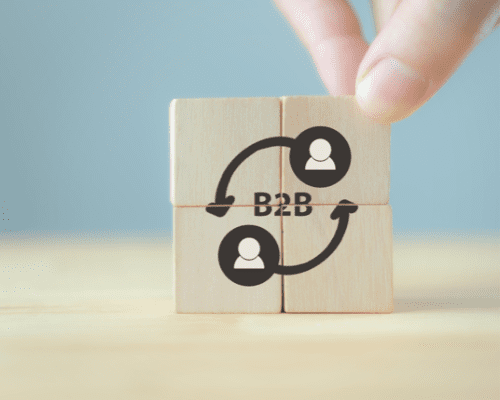A CRM system allows for the management of customer relationships and helps a sales team improve the process of converting leads into clients, as well as maintaining the relationship after the sale. For a more efficient sales management process and better results, CRM tools must have a number of key features:
- Process automation for the sales team
Of all the features of a CRM, automation is a sales’ team most effective source for securing more sales while putting in less effort. Automating routine operations allows professionals to be more efficient and focus on more strategic objectives. It improves processes, saves time, effort and money, as it allows a team to dedicate more time to improving the customer experience.
In addition, automation helps to enrich CRM records with elements such as information on leads, contacts and accounts – tracking their interactions with the company. Having a centralised database of client information enables a sales team to know a customer’s contact history and better meet their needs.
With this in mind, a good CRM for sales must integrate the following functions:
- Optimisation for work processes: a CRM can increase your team’s productivity by automating processes such as data collection and analysis, marketing campaigns or any other processes that have traditionally been performed manually. It also provides reports and analysis that help users identify areas in need of improvement.
- Customer service automation: following the evolution of artificially intelligent databases, customer service systems such as FAQ pages, chatbots and emails are increasingly automated. A CRM platform allows employees to control and monitor these systems from a UI.
- Customer satisfaction management software: this technology allows you to manage customer relations more efficiently, allowing employees to treat each case individually, resulting in an increase in client satisfaction. Thanks to this software, users can track a case, reopen any case at any time (even if they have already been closed), and manage sensitive information in a secure environment. This is essential to prevent both cyberattacks and information being leaked to clients.
- Client data analytics
In addition to automation, which helps the sales team get to know the customer, a high-quality CRM with good analytics is essential.
Customer behaviour has changed significantly due to social networks, chat forums and easy access to product and company information. The only way sellers can respond to these new demands is to have a system capable of gathering information on the customers the company supports which in turn, will help make the sale.
For a CRM to help sales professionals sell effectively, it must collect customer data and make connections which eliminate manual management tasks.
- Contact management: this feature allows you to segment your contacts into groups, organising and managing them to gather data pertinent to improving marketing campaigns for new products. It also helps to ensure customers receive more personalised attention, improving their satisfaction with the company.
- Sales analytics: this feature is one of the most valuable a CRM system can offer, allowing data collection from social networks, surveys or web traffic – storing and analysing them within the same software. In this way, users can leverage data from previous campaigns to create better campaigns in the future.
- Campaign management tools: this feature enables you to manage all aspects of your sales campaign through a single UI, from the ROI and campaign planning to the data extracted from it. CRM software combines data analysis tools with data collection software, providing valuable and relevant information for sales and marketing departments.
- Process and activity management
A good, sales-oriented CRM guides sellers through a company’s process, providing qualifying information on the customers so they know where they have to devote greater efforts, making the next steps much easier.
- Data storage in the CRM platform: one of the key features of the CRM is its data storage system. This feature makes it easier to register and use data, whilst integrating the necessary security measures to protect it.
- Marketing automation: Allowing you to focus your efforts on those audiences that are more likely to show interest in your products, marketing automation maximises your campaigns’ results.
- File synchronisation: CRM software provides the ability to synchronise all programs and platforms used in a business into a single system. This way, you can centralise and see emails found on your server, as well as your Google Drive files, spreadsheets or text documents.
- Synchronisation and mobility
Synchronisation requires the CRM to have great technical precision and therefore, we have to be aware of some issues: most sales employees still need offline access, because they’re not connected to the internet all the time. In areas where there’s a bad connection, or locations with limited internet access, it’s still necessary to be able to access the CRM.
A sales team that can access the CRM offline – using the system to consult their account, contacts and leads and plan for a meeting – will be better prepared and informed.
In some cases, offline synchronisation is not required, but we have to be certain that’s the case for our sales team before overlooking it. The greatest threat to data quality is the inability to update information.
- Mobile CRM: it’s important that the CRM you choose comes with a mobile App. That way, members of the sales team can manage a relationship with a client, access data and receive campaign alerts all from their mobile device.
- Fast pipeline display
Helping businesses update the details of a possible sale is one of a CRM’s most important functions. Data should be collated into a single view to prevent the sales team from having to search through different sections of the CRM to find the information they need.
In addition, the management of the pipeline should be equally accessible; a good CRM shows the sales team which part of the process they’re in, and their progress in fulfilling quotas. The ideal pipeline management is visual.
Sales reps should be able to know at a glance where every lead is in the pipeline, the pipeline’s value and what actions should be taken to move those leads forward.
For most companies, the sales department is located in the centre of both the business and the CRM. Therefore, the CRM must include features that genuinely help the team make more sales.
If you’re looking for a CRM system that boosts your team’s productivity and results, we invite you to discover the latest developments in the sector in our CRM Innovation Showcase. The event will take place on 20th November in London at The Crowne Plaza – The City. Don’t be left behind. Explore the latest digital trends in CRM and CX.










